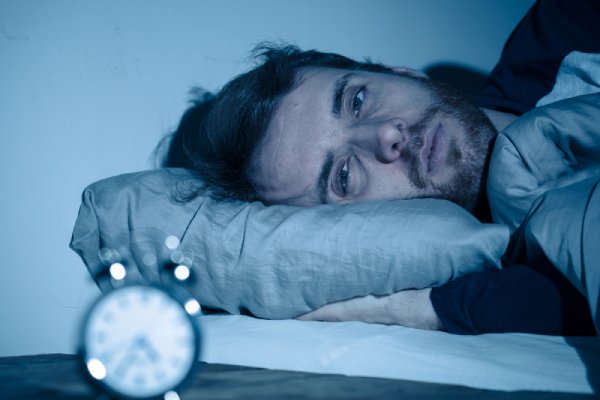
Insomnia and anemia are two widespread issues that seriously impact the health of individuals. Anemia is caused by the insufficiency of red blood cells to carry oxygen to the body tissues. It leads to symptoms such as fatigue, weakness, and difficulty breathing. On the other hand, insomnia refers to the persistent difficulty of falling or staying asleep. It results in poor energy levels, mood disturbances, and decreased productivity. Though these conditions appear unrelated to each other, this in-depth study shows a link between them.
In this blog, we will explore these two conditions and a prominent question that people with anemia often ask: can anemia cause insomnia?
What is Anemia?
It is a blood disorder which occurs when you lack enough red blood cells or they are unable to work efficiently. Anemia can be inherited or acquired during an individual’s lifetime. Anemia can affect a person in many ways. Sometimes the symptoms are mild and can be treated with ease. However, anemia that is inherited can cause severe health issues. Anemia can also indicate serious medical conditions, such as cancer (e.g., leukemia, lymphoma, myeloma, etc.).
What is Insomnia?
Insomnia is a sleeping disorder in which a person finds it hard to fall asleep or stay asleep for a typical duration. You might wake up too early and then be unable to get back to sleep. Furthermore, a person feels tired when waking up in the morning because of not getting the proper sleep or because of waking up after getting 3-4 hours of sleep.
Though the hours people sleep vary from person to person, it is medically suggested to get 7-8 hours of sleep every day. An insomniac person is unable to sleep through this recommended duration.
How Does Anemia Affect Sleep?
There are many symptoms of anemia that can interfere with good sleep and make it hard for a person to experience good sleep.
Fatigue
Many people experience a healthy sleep after getting exhausted or tired from all day’s work. However, people with anemia might not say the same. Fatigue is the main symptom of anemia and those individuals that experience it find it difficult to sleep peacefully at night. The reason can be the excessive daytime sleepiness that fatigue results in and this night hinders a person’s normal sleep-wake cycle.
Restless Leg Syndrome
It is a neurological disorder in which a person feels an irresistible urge to move their legs at night. It is because of the sensations that a person feels in their legs that cause them to move them and thus make it difficult for a person to stay asleep. According to the National Institute of Neurological Disorders and Stroke, 10% of the US population is affected by RLS and many of them are also iron deficient, which can impair blood cell production.
Night Sweats and Palpitations
Anemia can cause night sweats and heart palpitations, disrupting sleep and causing frequent awakenings. Night sweats often require changing clothes or bedding, making it hard to fall back asleep. Palpitations can trigger anxiety and restlessness, making it even harder to get a good night’s rest.
Cognitive and Emotional Impact
Anemia can lead to anxiety, depression, and trouble concentrating, which makes relaxing and falling asleep difficult. So, can anemia cause insomnia? Insomnia often occurs alongside anxiety and depression, creating a cycle of poor sleep and worsening mental health.
Impaired Physical Health
Anemia weakens the immune system, increasing the risk of illnesses that may cause discomfort and disrupt sleep. Pain or frequent sickness from anemia can make sticking to a regular sleep routine very difficult. Poor physical health from anemia reduces the body’s ability to recover, affecting sleep quality over time.
Hormonal Imbalances
Anemia can lead to hormonal changes, like thyroid imbalances, that disturb sleep and energy levels. Thyroid hormones play a key role in regulating metabolism, which directly affects the ability to sleep well.
So, can anemia cause sleep problems? Hormonal disruptions linked to anemia make it harder to achieve restorative and refreshing sleep.
Sleep Disruptions and Anemia: A Closer Look
A recent study published in the Chinese Medical Journal explored the connection between anemia and insomnia in 12,614 Chinese adults. The research revealed that people with anemia, a condition marked by low hemoglobin levels in the blood, had a 32% higher risk of developing insomnia over six years compared to those without anemia. The findings also showed that severe anemia significantly increased the likelihood of insomnia compared to mild or moderate anemia, and men faced a higher risk than women.
This study highlights anemia as a possible risk factor for insomnia and suggests that treating anemia might help improve sleep. Researchers recommend further studies to uncover the biological mechanisms behind this relationship, especially the role of the MEIS1 gene, which is linked with insomnia, RLS, and iron-deficiency anemia (IDA). These insights could lead to new ways to prevent and treat insomnia in individuals with anemia.
Diagnosing and Addressing the Issue
It’s crucial to consult a healthcare professional if you suspect anemia or sleep problems. To answer the question, does anemia cause insomnia, an accurate diagnosis is essential. This can be achieved through blood tests, including hemoglobin levels and iron studies, to diagnose anemia. Furthermore, discuss your sleep issues with a doctor, who may recommend sleep studies to identify underlying causes.
Treatment Options
Addressing Anemia
Dietary Changes
If you’re dealing with anemia, a diet rich in iron is crucial. Iron helps your body produce red blood cells that carry oxygen. Foods like red meat, spinach, beans, and fortified cereals are great sources of iron. Vitamin C helps your body absorb iron better, so try combining foods like oranges, strawberries, or bell peppers with your iron-rich meals.
Supplements
Sometimes, dietary changes may not be enough to address anemia. Iron supplements are often prescribed to boost your iron levels quickly. Additionally, vitamin B12 and folate are vital in helping your body create red blood cells, so supplements for these vitamins might be recommended as well.
Medical Treatments
Anemia can sometimes be caused by underlying health issues, such as chronic disease, vitamin deficiencies, or bleeding disorders. If these are the causes of your anemia, your doctor might suggest specific treatments. This could include managing the underlying condition or, in some cases, receiving treatments like blood transfusions or medications that stimulate red blood cell production.
Managing Insomnia
Sleep Hygiene Tips
Good sleep hygiene is essential to managing insomnia. This includes establishing a consistent sleep schedule by going to bed and waking up at the same time every day. A relaxing bedtime routine, such as reading or taking a warm bath, can signal your body that it’s time to wind down. Avoid caffeine and heavy meals close to bedtime, as these can interfere with your sleep.
Cognitive Behavioral Therapy for Insomnia (CBT-I)
CBT-I is an effective, non-medical treatment for insomnia. This therapy helps you identify and change thoughts and behaviors that disrupt your sleep, such as worrying about not falling asleep. A therapist will work with you to develop strategies that help you relax, stay calm, and improve your sleep habits over time.
Medications
If insomnia persists and other methods don’t work, medications may be recommended. However, a healthcare provider should always guide the use of sleep medications. Your doctor may suggest sleeping pills or other medications that help you fall asleep and stay asleep, but they should only be used temporarily and in conjunction with other treatments like CBT-I.
Ready to Book Your Appointment?
Take the first step toward better health—schedule your visit now with our expert team.
Conclusion
In summary, the answer to the question, can anemia cause insomnia, is that the two are closely linked. Symptoms such as fatigue, restless leg syndrome (RLS), and hormonal imbalances can significantly disrupt sleep. Research indicates that individuals with anemia are at a higher risk of developing insomnia. By addressing anemia and insomnia through medical care, iron supplements, and improved sleep hygiene, the overall quality of life can be significantly enhanced.

